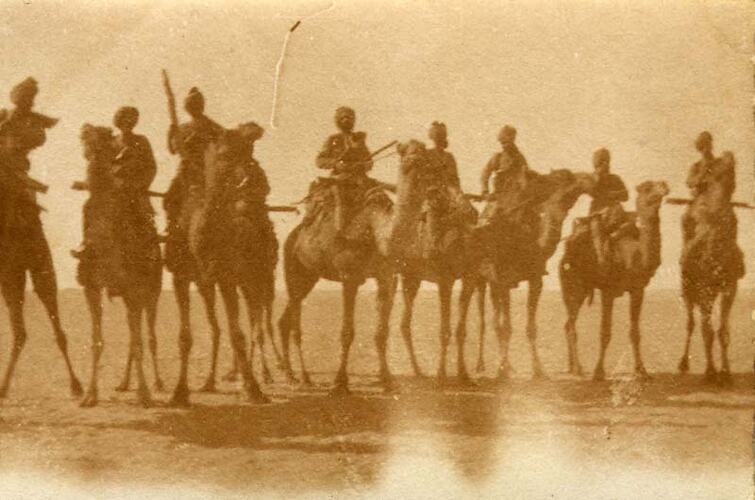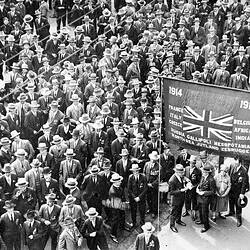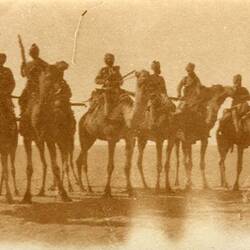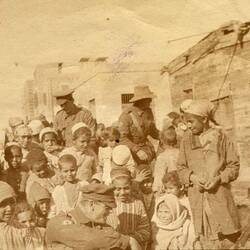Anzac Day is an occasion to honour the service of all Australians in wars - including many identifying as Muslims. Their Muslim Australianness has been found in military records, providing a unifying bond for Muslims to embrace Australian values, reflected in their identification with Australia and its people.
A history of Muslims in the Australian military represents a quite new and a unique addition to much broader Australian military history. Australian Muslims and their descendants can fairly take their place in Australia's Anzac history among those of Anglo-Celtic ancestry and other ethnic groups who served Australia in war. Yet due to their small numbers their identities have been virtually invisible in the historic record.
Australian Muslims and their descendants in Australian uniform came from many different races, ethnicities, sects, cultures and languages of Asian, European and Arab backgrounds. They settled or were born in Australia but struggled to enlist - mainly due to the impacts and attitudes associated with the White Australia Policy. Despite these difficulties, Muslim families gave husbands, fathers, brothers and sisters to the Australian military forces. With Australian comrades they fought against common enemies. Fighting for their country, Australia, was a great challenge and an honour for them, while their Muslim communities regarded them with pride. Indeed, with their Aussie comrades they fought 'One for All, All for One' - there was no colour line in trenches.
During World War I, Australian Muslims served in the Australian Imperial Force (AIF) in trenches on the Western Front, with a couple of them in the Gallipoli campaign. Afghan and Indian cameleers bred and trained camels in Australia that would be shipped to the Imperial Camel Corps (ICC) in the Middle East. They also donated some camels to the ICC.
In the Middle East, Australian soldiers showed their reverence for the places of their deployment - their military ethic included orders to respect all civilians, including Muslims, their mosques and native customs. For instance, they were honoured guests at Muslim religious ceremonies in Egypt and had many peaceful encounters on the street of Cairo with Egyptian women and children.
During World War II, Muslims served in the Australian military in considerably larger numbers. They fought in many theatres of war against the Axis powers in the Australian Army, Royal Australian Air Force (RAAF), Royal Australian Navy (RAN) and Merchant Navy (MN). Several servicewomen of Islamic background also held rank in some units and many took part in significant conflicts.
Although Muslims typically came from small minority groups, their contribution was worthy. Serving in the Australian military they put Australia first, before any other individual considerations. Some gave their lives for the noble cause.
Australian Muslim soldiers shared munitions, and also comforts and hampers, with their Aussie comrades, developing ties that looked ahead to making a better future together. Their contribution, 'shoulder to shoulder' with other Australians, demonstrated an important aspect of the victory that was achieved for the prosperity of generations to come. Muslims defending Australia in the nation's epic history is also its perpetual treasure.
Muslims in the Australian military are an amalgam of the rich Australian multicultural mosaic. By commemorating Anzac Day with ongoing respect to all Anzac soldiers, including their Muslim comrades-in-arms, let's say: Lest we forget.
*
This article is based on Dr Dzavid Haveric's research project and book A History of Muslims in the Australian Military from 1885 to 1945: Loyalty, Patriotism, Contribution (2024). Dr Haveric is a Research Associate at Museums Victoria.
More Information
-
Keywords
-
Localities
-
Authors
-
Article types



